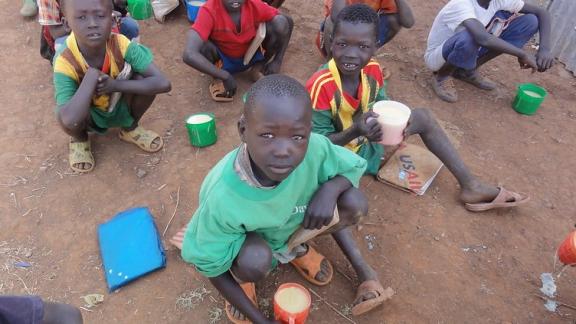
Approximately half of school-aged children worldwide receive nutrition support through school meals and related programs. The logistics, monitoring and evaluation of these programs have been managed by numerous agencies and organizations involved in the global food, nutrition and health enterprise. While the focus of efforts to support school aged children has been primarily on “learning” as a priority outcome in evaluation of these programs, much less attention was being paid to the “learner.” Specifically, significant gaps exist in our understanding of how these programs might be improving not only academic outcomes, but what impact these interventions were having on the child’s health and development and how such outcomes be measured. As a result of conversations with the global school meals community, the Biomarkers of Nutrition for Development-Knowledge Indicating Dietary Sufficiency (BOND-KIDS) Project was established to fill this gap.
The BOND-KIDS Project acknowledges children as complex biological systems that interact with an internal (metabolism, physiology, nutrition, genetics, health status – all across a range of developmental stages) and external (home, community, economic, social, behavioral, and physical) environment (i.e., an ecology). The objectives of the BOND-KIDS project are based on the need for better tools to measure the necessity for and functional impact of school-based nutritional interventions on the health and development of school-aged children, ages 5-19. The outputs of BOND-KIDS Phase I serve as the basis of both a targeted research agenda and a second BOND-KIDS Phase II to test and develop the evidence to support the implementation of the BOND-KIDS ecological approach. This webinar, hosted on behalf of the U.S. Government Global Nutrition Coordination Plan, presented Phase I results and discussions on integrating these findings into Phase II.
Webinar Recording
Webinar Resources:
- Access the slide deck (PDF, 6.27 MB)
- View the webinar transcript (PDF, 316.56 KB)
Speakers
- Dan Raiten, Program Director for Nutrition, Eunice Kennedy Shriver National Institute of Child Health and Human Development, National Institutes of Health
- Connie Weaver, Distinguished Research Professor in Exercise and Nutritional Sciences, San Diego State University; Distinguished Professor Emerita of Nutrition Science, Purdue University; Chief Executive Officer, Weaver and Associates Consulting, LLC.
- Maureen Black, Distinguished Fellow, Early Child Development, RTI; Professor in the Departments of Pediatrics at the University of Maryland School of Medicine; Adjunct Professor in the Center for Human Nutrition, Johns Hopkins Bloomberg School of Public Health and the Department of Psychology, University of Maryland Baltimore County
- Saurabh Mehta, The Janet and Gordon Lankton Professor, Division of Nutritional Sciences, College of Human Ecology, Cornell University
- Christina Economos, Dean and Professor, Friedman School of Nutriton Science and Policy; New Balance Chair in Childhood Nutrition; Professor of Public Health and Community Medicine, Tufts University School of Medicine
- Andrew Bremer, Chief, Pediatric Growth and Nutrition Branch, Eunice Kennedy Shriver National Institute of Child Health and Human Development, National Institutes of Health
- Alison Steiber, Chief Science Officer, Academy of Nutrition and Dietetics